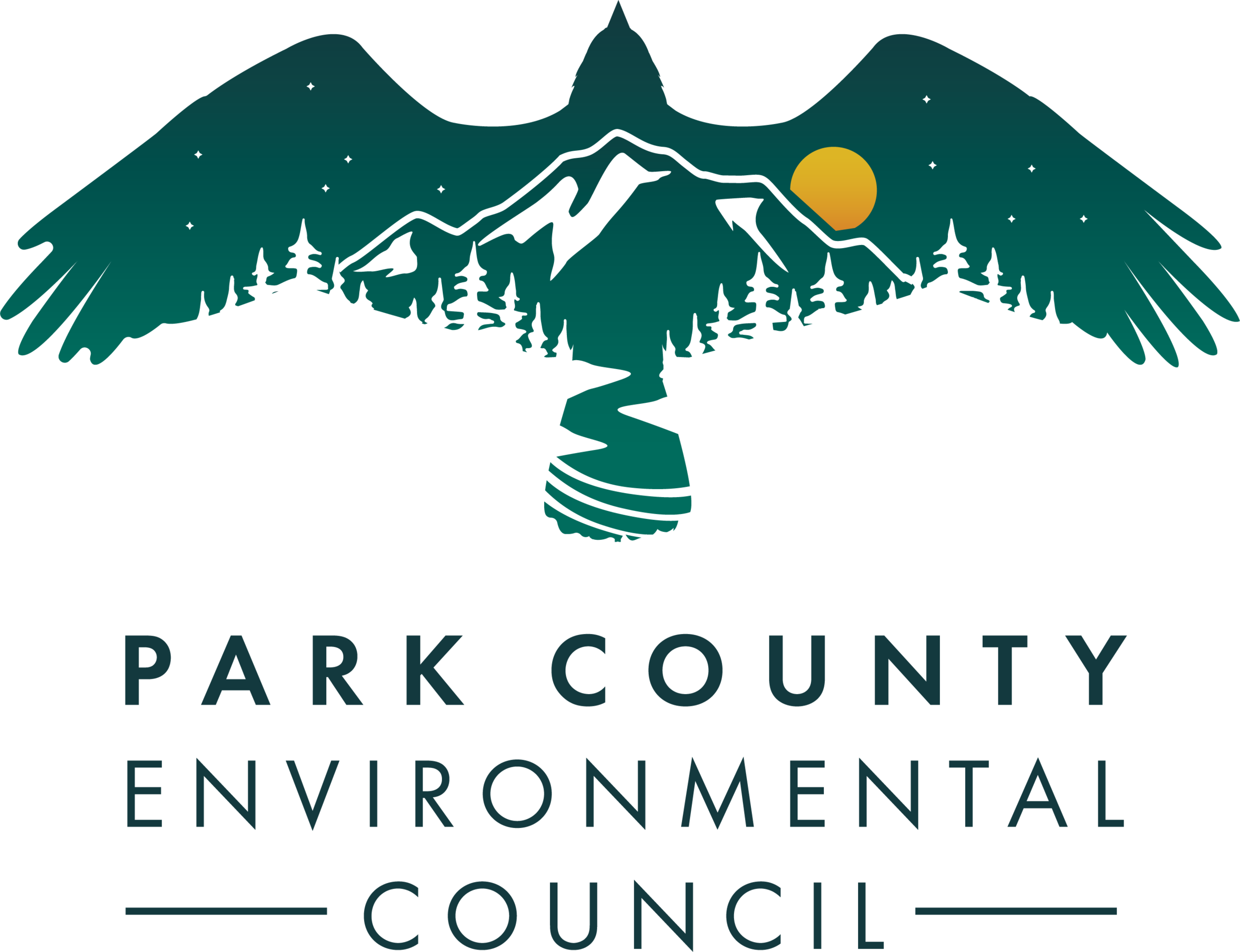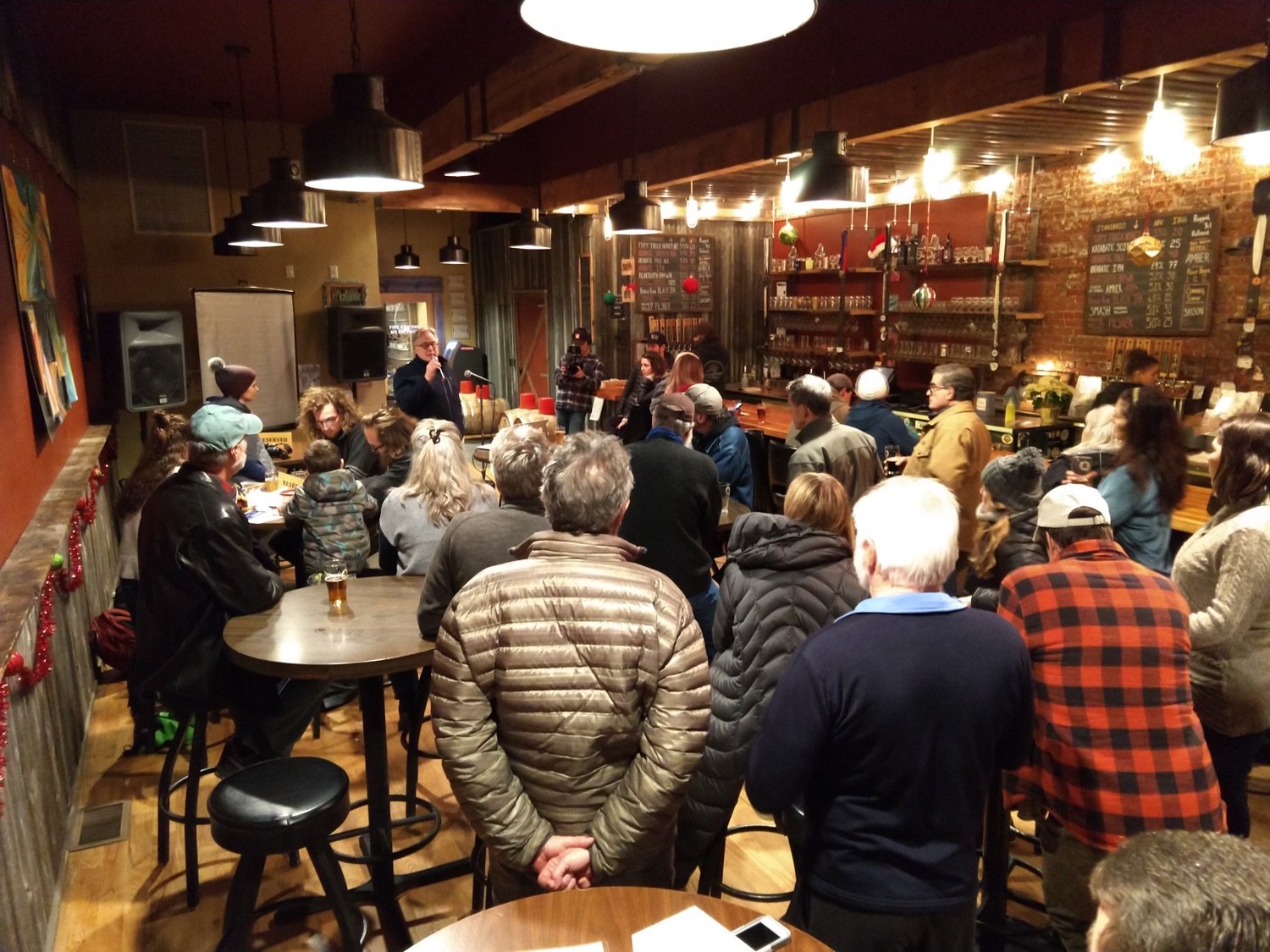A bill targets our Yellowstone mine campaign in Helena!
A bill that takes aim at our landmark court victory over the proposed Lucky Minerals mine near Emigrant passed its second reading in the Montana Senate today by a vote of 30-19. It has one more vote then will go to the House.
We need you to tell our local legislators to vote no on Senate Bill 557.
The bill includes provisions that would impose significant financial barriers on individuals and nonprofits seeking to hold government agencies accountable, effectively cutting the public out of the process of ensuring that the state government protects citizens' right to a clean and healthful environment.
For background on the case, PCEC and our partners originally challenged DEQ’s approval of Lucky Minerals’ mining permit up Emigrant Gulch in 2017. The District Court sided with our local coalition, saying that DEQ failed to do a thorough environmental review. The case eventually went to the Montana Supreme Court, who voided the permit and found a 2011 amendment to the Montana Environmental Policy Act to be unconstitutional. That amendment allowed permits to be valid, even if a court found that an agency’s approval of the project was unlawful, while DEQ continued analysis.
You can learn more about PCEC vs. DEQ here.
The goal of the bill is to make it more difficult for the public to challenge bad decisions made by the state government.
Please contact your legislators and tell them to vote no.
Sen. John Esp
Senate District 30
P: (406) 932-5662
Email: John.Esp@legmt.gov
MT Representative Laurie Bishop
House District 60
P: (406) 223-1122
Email: Laurie.Bishop@legmt.gov
MT Representative Marty Malone
House District 59
P: (406) 223-1302
Email: Marty.Malone@legmt.gov
TALKING POINTS
Senate Bill 557 directly targets our local, bipartisan Yellowstone Gateway Mine efforts, and it fails the public in four significant ways.
First, the bill would require people who sue to disclose their donors. Does this mean that nonprofit organizations have to disclose their entire membership? What about corporations, do they have to disclose their partners or shareholders? It seems this is designed to intimidate citizens who wish to challenge government agencies' decisions.
Second, the bill would require people who sue to pay for the agency to provide the record of its action to the other parties and the court, creating a significant financial barrier for individuals seeking to hold government agencies accountable.
Third, the bill would require people who sue to seek an injunction, prove that they will eventually win on the merits of their claim, and pay a substantial financial bond before they can use the judicial system to defend their rights. This basically requires that people who sue prove that they will win their case before they even have the opportunity to make their argument in court, which is an absurd requirement. It’s especially absurd given that Montana's bonding requirement for mining companies is next to nothing.
Finally, the bill would require individuals to pay industry and the state's attorneys and expert fees in the event of a loss, even on a technicality, creating a significant financial disincentive for citizens to challenge government agencies.
Taken together, these four provisions effectively cut the public out of the process of ensuring that the state government protects its citizens’ right to a clean and healthful environment.
For the most up-to-date information, email Karrie at Karrie@pcecmt.org or Melissa at mnootz@meic.org.
Click here to attend MEIC's weekly legislative update on Thursday at 4:30 p.m. to learn more.
APRIL 2023 EVENTS
FWP Wolf Management Plan Public Scoping Meetings
April 4, 6 p.m. to 8 p.m.
Zoom: Click here!
April 11, 6 p.m. to 8 p.m.
Zoom: Click here!
Montana Fish, Wildlife and Parks will be holding two virtual public scoping meetings for the creation of the new Wolf Management Plan.
Attending one of these meetings and telling them to take special care when it comes to Yellowstone National Park wolves is important.
You can also submit a public comment form at this link. You can email public comments to FWPWolfPlanEIS@mt.gov.
Community Conversation: Community Resilience featuring Kate French
Wednesday April 5, noon
Zoom: Register today!
On Wednesday, April 5, PCEC will be hosting a Community Conversation to share about the ongoing Community Resilience planning process.
This year, Katherine Fazekas, an AmeriCorps VISTA hosted by PCEC, is working on helping Park County create a Community Resilience Plan. At this Community Conversation, you can learn more about what a resilience plan is, why it's necessary, and how you can get involved!
The conversation will feature Kate French, a Livingston resident and Rocky Mountain Field Organizer with the BlueGreen Alliance, helping to create more resilient communities across the West. Kate will speak about the grant opportunities and benefits that come with having a local resilience plan.
Money, Mapping and Monitoring for noxious weeds for landowners and applicators
Thursday, April 6, 5:30 p.m.
Park County Extension Office or Zoom
Come join us at the Park County Extension Office on April 6th at 5:30pm for a conversation about funding opportunities in Park County for weed control efforts, weed mapping platforms and how to use them, and available resources for treatment effectiveness monitoring. You can join online via zoom or in person.
Please be sure to contact Bethany to save your seat, space is limited. Click here to register via zoom. We will have coffee and snacks provided for those who come in person. +1 applicator credit will be available for both in-person and online participants.
Speakers: Bethany Allen (PCEC, Monitoring Specialist), Rebekah Wallace (EDDMapS, Data Coordinator), Cody Garcia (NRCS, Soil Conservationist), Lauren Zimmerman (FSA, Program Rep), and Bob Fleming (CWMA, Board Chair).
Agenda:
5:30- 5:50 pm
Intro: What is weed mapping and effectiveness monitoring? And why care?
5:50- 6:10 pm
Money: What funding resources are available in Park County to help with treatment cost?
6:10- 6:50 pm
Mapping: How to map weed infestations and pesticide/treatment applications?
6:50- 7:30 pm
Monitoring: How to monitor for treatment effectiveness and who can help?
For questions or to sign up contact Bethany Allen at (406)333-1398 or bethany@pcecmt.org or call the Extension Office (406)222-4156.

